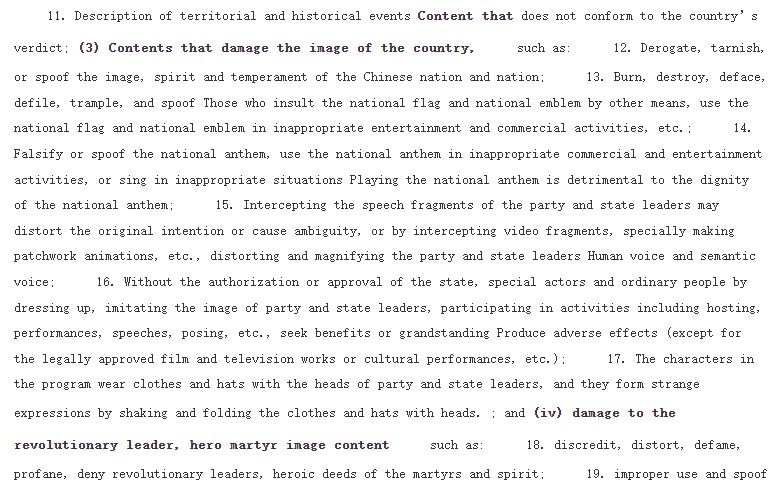In a controversial move but in keeping with its form of government, Chinese telecommunications authority issued a list of 100 topics that local Internet users will not be allowed to include in their short videos for specific apps. This list, officially known as the Online Short Video Content Review Standard Rules, prohibits talking about various topics, from mockery or criticism against the government to substance use and trading in virtual assets.
In this way, the Communist Party of China once again shows its total rejection of the Western way of life, since users are even prohibited from publishing videos with fragments of television programs not broadcast on Chinese territory, mainly material produced in the United States.
Sex is another topic that has never escaped the scrutiny of the Chinese government, so various terms with sexual connotations, including diversity and same-sex marriage are also banned in these videos.
As for political issues, discussion of doctrines such as extreme nationalism or fascism is also prohibited, not to mention that criticism cannot be expressed against the Chinese socialist model and the forms of government of countries considered allies.
Another topic that has been constantly rejected by the ruling party in China is the use of cryptocurrency, so citizens will not be able to touch on issues such as mining, trade, speculation and investment.

Among the 100 topics of discussion and prohibited terms, the following also stand out:
- Sale and consumption of drugs
- Gambling machines
- Organized crime and gangs
- Apology for criminal behavior
- Violence or psychological abuse
The list concludes by banning what the Chinese government identifies as “Other violations of laws, public order and good customs,” which can cover all of the topics mentioned above.
Chinese citizens usually do not openly express their dissatisfaction with these kinds of measures, instead, many Internet users in China resort to the use of word games to evade some of these rules, going unnoticed by local government monitors.
To learn more about information security risks, malware variants, vulnerabilities and information technologies, feel free to access the International Institute of Cyber Security (IICS) websites.

He is a well-known expert in mobile security and malware analysis. He studied Computer Science at NYU and started working as a cyber security analyst in 2003. He is actively working as an anti-malware expert. He also worked for security companies like Kaspersky Lab. His everyday job includes researching about new malware and cyber security incidents. Also he has deep level of knowledge in mobile security and mobile vulnerabilities.











